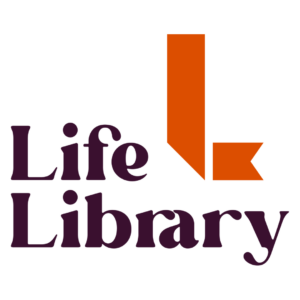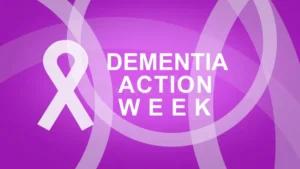LifeLibrary: Bringing stories to life during Dementia Action Week
Dementia Action Week is a time to raise awareness, but also to reflect on how we connect with those living with dementia. For Sheridan Norrey, founder of LifeLibrary, that connection begins with stories.
“Carers often find it hard to see through the ‘now’ person they’re looking after,” Sheridan explains. “But when you know someone’s life story, who they were as a child, their passions, their milestones, it changes everything.”
LifeLibrary is a digital platform designed to preserve and share life stories in care settings. Families upload photos, memories and personal histories into a resident’s profile. Carers can then access that story at any time, creating more meaningful conversations and a stronger sense of connection.
“With dementia, recent memories are often lost first. But early memories, childhood, school days, early work life, those can remain powerful. LifeLibrary makes those memories visible again.”
A legacy that lasts
The idea for LifeLibrary came when Sheridan was exploring opportunities in the care space and stumbled on a startling thought: there are millions of people in care, each with a lifetime of stories and many of those stories risk being lost.
“Someone told me there are 800,000 people in care homes in the UK. I just did the maths and that’s 65 million years of stories. My brain went: how can I make use of those stories?”
“Someone told me an East African proverb: ‘When an old person dies, a library burns to the ground.’ That stuck with me,” he says. “I realised we needed a way to preserve those libraries — for the people themselves, for families and for carers.”
A digital life story that lives with the resident
Unlike photo albums that stay in bedrooms, LifeLibrary travels with the carer, a tool they can access from a phone or tablet, wherever they are in the care home.
“If a carer’s walking through the lounge and sees someone on their own, they can pull up LifeLibrary and say something like, ‘Tell me about your school days, I saw you went to school in Leicestershire.’”
These simple moments can spark joy and ease anxiety, especially for residents with dementia. The platform even allows carers to tag photos as positive or upsetting, so only comforting images appear first when a profile is opened again.
“It means a resident can start their day with the most uplifting memories we’ve seen them respond well to.”
Helping carers do more with the time they have
Care homes across the country are always striving to balance quality care with efficiency. LifeLibrary supports that goal, not by saving time, but by making the time carers have more meaningful.
“If a carer has ten minutes with a resident, what do they talk about?” Sheridan asks. “With LifeLibrary, they talk about childhood, favourite holidays, a photo of their first job. It transforms that time into connection.”
There’s even a feature that helps care teams match residents with shared interests. Whether it’s swimming, music, or gardening, carers can bring people together through common passions they may not even know they shared.
More than dementia care
While LifeLibrary is a valuable tool in dementia care, it’s also useful in other settings, including complex care, learning disabilities and non-verbal individuals, where personal history might not be easily communicated.
“So often, a carer builds a great relationship with someone over years. Then they move on, and none of that knowledge is passed on. LifeLibrary captures it, so nothing gets lost.”
Families can also receive updates directly through the platform, with care teams sharing photos and stories in real time, helping bridge the gap between home and care home.
And in moments of celebration or remembrance, LifeLibrary becomes a lasting tribute. Many families use it at funerals, playing a carousel of images that tell the person’s story.
Sheridan has even created LifeLibrary for his own family, uploading photos of his grandparents, parents, and children. “If something happened to my mum tomorrow and I had to write a eulogy, I wouldn’t know half the details of her life before I was born,” he says. “Now I do.”
The Person First, Always
During Dementia Week, LifeLibrary is a timely reminder that technology in care doesn’t have to be cold or clinical; it can do something truly human.
Because behind every diagnosis is a person. And every person has a story worth telling.
In closing Sheridan has a few words for the wonderful carers supporting people living with dementia.
“You are doing an incredible, selfless job. Be kind to yourselves, build your support network, equip yourselves with knowledge and never lose sight of the person at the heart of it all.”
“If you can, try and learn as much about the life of the person you care for as possible. It is so important to see the whole person and not just the now person. Find that one golden thread running through someone’s life and you will end up with the most amazingly positive outcomes.”


